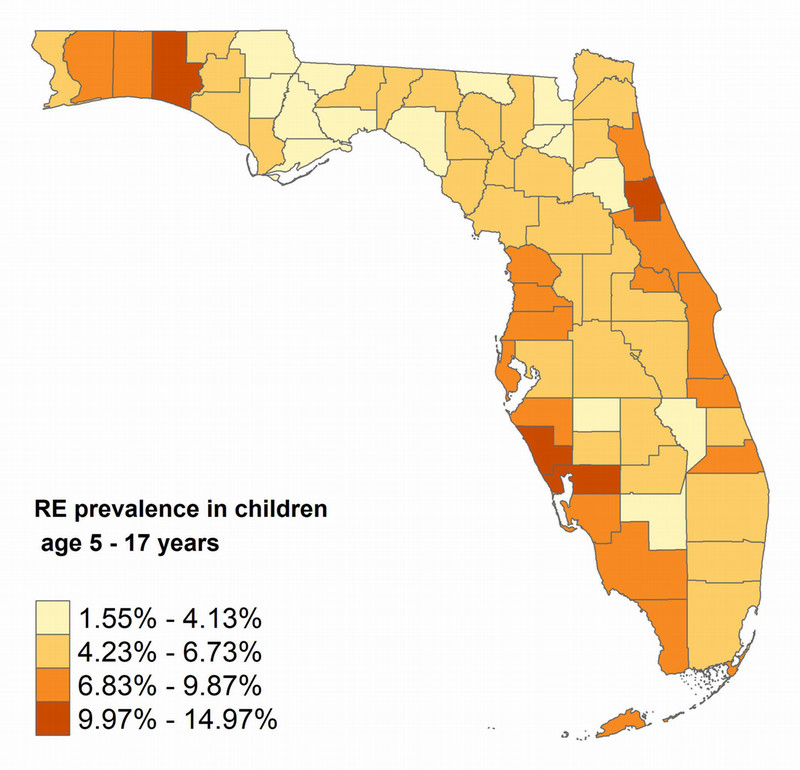It's a New Day in Public Health.
The Florida Department of Health works to protect, promote, and improve the health of all people in Florida through integrated state, county, and community efforts.
Vaccine Preventable Diseases
VPD Report and Page

Hepatitis A

- Hepatitis A activity increased from last month and was below the previous 5-year average.
- 16 cases were reported in April.
Pertussis

- Pertussis activity increased from last month and was above the previous 5-year average.
- 150 cases were reported in April.
Meningococcal Disease

- Meningococcal disease activity decreased from last month and was below the previous 5-year average.
- 2 cases was reported in April.
Varicella

- Varicella activity increased from last month and was below the previous 5-year average.
- 58 cases were reported in April.
For all vaccine-preventable diseases, timely and complete vaccination is the best way to prevent infection. Although vaccinated individuals can still become infected with diseases like pertussis or varicella, in general, those who have received at least 1 dose of vaccine have less severe outcomes than those who have never been vaccinated for the disease.

Unvaccinated children are at increased risk of vaccine-preventable diseases like mumps, pertussis, and varicella. Communities with a higher proportion of religious exemptions (REs) to vaccination are at increased risk of vaccine-preventable disease transmission.
The proportion of children age 5-17 years with new REs are increasing each month. Statewide, the estimated prevalence of REs among children age 5-17 years old is 6.39% with individual counties ranging from 1.52-15.03%.
To learn more about REs at the local level, please visit FloridaHealth.gov/REmap.
The rate of religious exemptions is likely higher than the rate presented in this report. This is due to eligible persons with religious exemptions who have opted out of Florida SHOTS and persons who have had their religious exemptions processed outside of the Florida SHOTS system. The map above includes REs registered in Florida SHOTS through April 30, 2025.



Connect with DOH